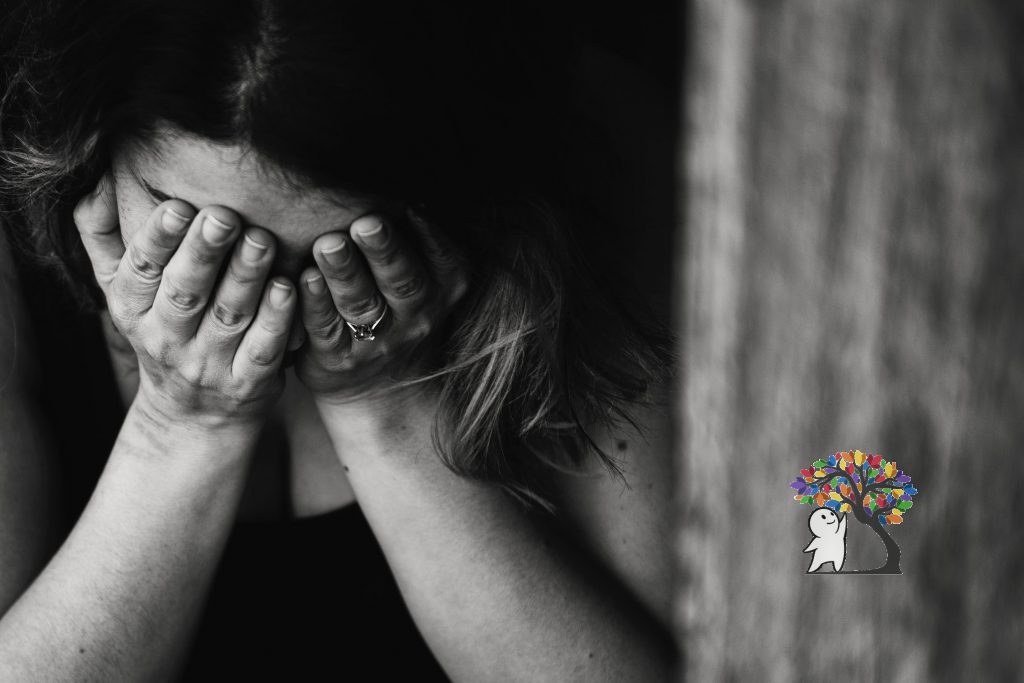Bipolar 1 vs Bipolar 2 Disorder

Disclaimer: If you relate to anything listed in this video, please reach out to your doctor to discuss your symptoms, as this video is not intended to diagnose yourself or others.
There are many different types of mental illnesses: depression, anxiety, PTSD, bipolar disorder, and more. You may have heard of bipolar disorder before. It is a mental illness that affects your moods. A common misconception about bipolar disorder is that a person has frequent mood swings going from happy or positive to sad, angry, irritated, or other negative emotions almost without warning. But did you know that there are different types? Today, we are going to learn about the similarities and differences between bipolar 1 and bipolar 2 disorder.
Bipolar 1:
The first type of bipolar disorder we’re going to talk about is bipolar 1 disorder. People with BP1 go through cycles of mania, depression, and “normal” moods. However, not everyone with BP1 experiences depressive episodes. Sometimes, they just experience shifts between normal and manic moods. It can often feel like riding a roller coaster. You’re going up the first hill with all of these exciting, adrenaline-inducing emotions building up. When you get to the top, you feel like you’re on top of the world. What exactly is mania though?
According to the DSM-5, mania is defined as a distinct period of abnormally and persistently elevated, expansive, or irritable mood and abnormally and persistently goal-directed behavior or energy. This is just a general definition. Not everyone with BP1 experiences mania the same way. If you have BP1 disorder and are in a manic episode, you may have lots of energy, feel wired, have racing thoughts, talk faster than usual, take part in risky behaviors, need less sleep, or have heightened, intense senses such as smell or touch.
A person without BP1 may experience these symptoms for various reasons. Maybe you had too much caffeine or sugar, or maybe you’re just in a good, energetic mood. The key differences are that manic episodes are usually very extreme, out of the ordinary for the person experiencing them, and the episode lasts at least 7 days.
Occasionally, some people with BP1 may experience psychosis while in a manic episode. Psychosis is easily understood as a loss of contact with reality. A person experiencing psychosis may have delusions, hallucinations such as hearing voices or seeing things that aren’t really there, or talking incoherently and saying things that don’t seem to make sense to other people. If you are in a psychotic episode, you’re probably not aware that you are or that anything is even wrong at all. Psychosis is a serious condition and usually requires emergency care.
Depression is the other “extreme” mood that a person with BP1 may experience and often immediately follows a manic episode. Just like the roller coaster example we used for mania, what goes up must come down. A person with BP1 will quickly go from feeling like they’re on top of the world to speeding down the hill into a far more negative mood.
Just like with mania, not every person experiences depressive episodes the same way. If you’re depressed, you may have mental and behavioral symptoms such as having little or no interest in doing the things you normally enjoy doing, hopelessness, intense sadness, irritability, or lack of concentration. Depressive episodes can also affect you physically and may make it harder for you to fall or stay asleep, make you feel fatigued, or make you lose your appetite.
Bipolar 2:
Another type of bipolar disorder is bipolar 2 disorder. BP2 is similar to BP1. However, symptoms tend to be milder than those that present in people with BP1. People with BP2 experience bouts of depression and normal moods, just like those with BP1. Rather than mania though, people with BP2 have hypomania. What exactly is hypomania though?
Hypomania is often very similar to mania. If you experience hypomania, you’ll more than likely have the same symptoms of mania, just in a milder form. This can include an increase in energy, racing thoughts, increased motivation to take on new projects, and others that we previously talked about with manic symptoms. Hypomanic episodes don’t usually cause extreme issues in your life as manic episodes do though. That’s not to say that they can’t be troublesome or disruptive.
While people with BP1 usually experience more problems with manic episodes, people with BP2 tend to have more issues with the depressive episodes than hypomanic episodes. Of course, everyone is different and these are just trends.
Conclusion:
Bipolar 1 and bipolar 2 disorder have their similarities as well as their differences. While BP1 tends to deal more with manic episodes and BP2 deals with more extreme depressive episodes, neither one is “better” or “worse” than the other—they simply affect you in a different way. Was this video educational? Would you like to see more mental health illness topics like this? Also If you know someone who may benefit from online counseling, we actually partnered up with BetterHelp, an affordable online counseling platform that you you could utilize. They are constantly striving to improve their services and terms and conditions. The link will be in the description box.
Written By Merinda Quegan
References
Grohol, J. M. (2016, May 17). Hypomanic episode symptoms. Psych Central. Retrieved
April 14, 2020, from
https://psychcentral.com/disorders/hypomanic-episode-symptoms/
National Center for Biotechnology Information. (2016, June). Table 11, DSM-IV to
DSM-5 manic episode criteria comparison – DSM-5 changes – NCBI bookshelf.
https://www.ncbi.nlm.nih.gov/books/NBK519712/table/ch3.t7/
National Institute of Mental Health. (n.d.). Bipolar Disorder. Retrieved April 14, 2020,
from https://www.nimh.nih.gov/health/topics/bipolar-disorder/index.shtml
WebMD. (2005, March 25). What are hypomania and mania in bipolar disorder?
Retrieved April 14, 2020, from
https://www.webmd.com/bipolar-disorder/guide/hypomania-mania-symptoms




Responses